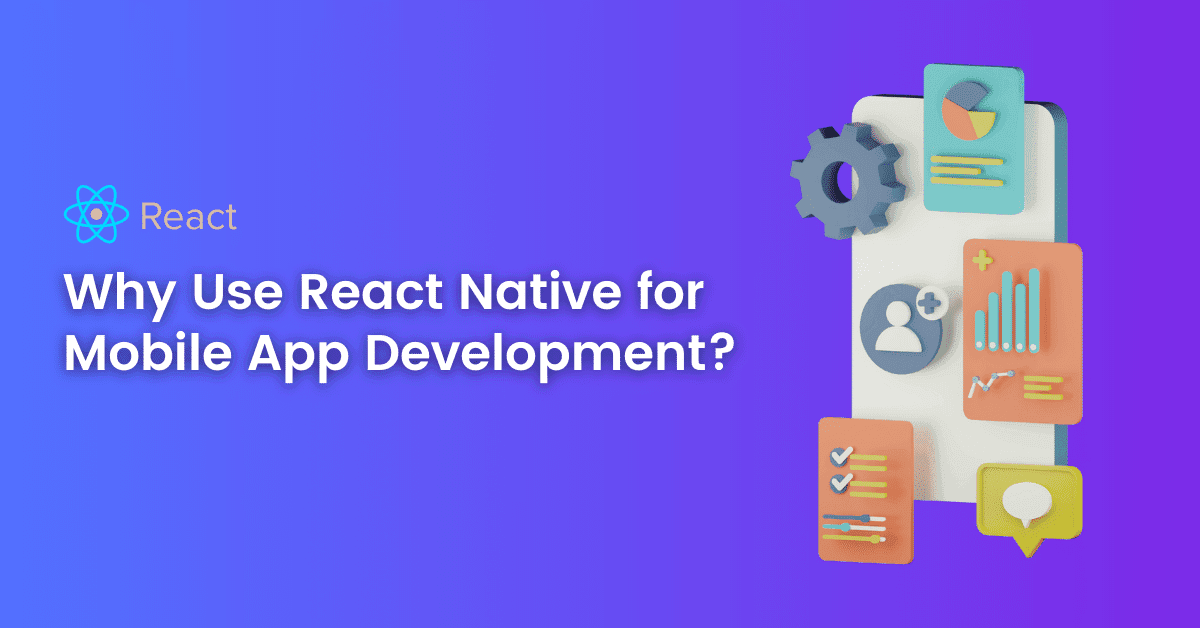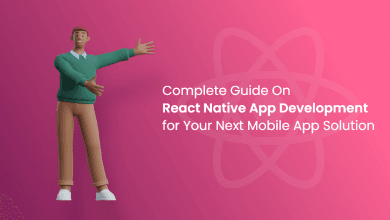Why Use React Native for Mobile App Development?

Introduction
In software development, choices come in abundance and we face them regularly.
Which platform should you focus on, which approach should you take to move from A to B, which languages, libraries, or frameworks will work best for you?
These are just a few of the many multiple-choice questions that each project presents us so lavishly.
And before you realize the true circumference of the problem, there will be countless opinions that will only add to this confusion.
Now let’s imagine that you need to create an iOS and Android mobile app for your business or customer and do it in the fastest, easiest, and most economical way possible.
If you’re from the mobile development world, you’ll probably opt for native development in Java (for Android) or Objective C / Swift (for iOS), but doing both versions will obviously require almost twice as much effort.
If you have experience in web development and you are really good at JavaScript but have never dealt with mobile development, you will probably be confused and not know where to start.
A situation like this might naturally make you think of a cross-platform solution; a solution capable of bridging the gap between your experience as a JS developer or a single-platform mobile specialist and the need for a native mobile application written once to work on a wide range of devices.

There are different cross-platform products and choosing the best development for a mobile app depends on a number of factors including, but not limited to the following:
- Unique requirements that can influence the choice of platform to use;
- Developer’s experience with a particular language and skill set;
- The future of the application (need to maintain, customize and update the code).
Opting for a cross-platform solution offers a number of advantages for the developer and yet poses many challenges.
As a mobile developer with little web development experience, you may find that the learning curve for popular cross-platform tools is quite steep.
As a front-end developer, you will also spend a considerable amount of time absorbing the new development philosophy, but in the end, you will find that the results are well worth so much effort.
Now let’s focus on the key theme of this article – React Native for mobile app development.
What is React Native?
React Native is a framework built on ReactJS which aims to accelerate the development of mobile applications. It allows developers to create web user interfaces in JavaScript from reusable visual components.
React Native was created by Facebook with a clear objective – to increase productivity while delivering quality native applications.
React Native helps you develop complete applications that work and look exactly like the native application without even a single line of platform-specific code.
For React Native, the data is updated within the native components of your mobile applications.
OneClick IT Solutions explains today’s React Native development use and its benefits for mobile apps.
1. Open-Source
We know that open-source projects include a large community of contributors. React Native, too, has a very large community of programmers who are constantly working on fixing bugs, improving functionality, and helping users with their projects.
5 years after its launch, React Native is one of the most popular projects on Github with over 2000 contributors and a very active community. The impact of the growth of this community has greatly contributed to its success.
The React Native ecosystem is very dynamic, in particular thanks to the support of Facebook but also of other “giants” such as Pinterest, Skype or Uber.
The React Native community provides many updates and add-ons. Updates are therefore regular, with responses to relevant issues and extremely fast when we develop our projects.
React Native is now adopted by developers and although the framework is still new, it continues to mature and strengthen its position.
2. Cross-Platform
The majority of React Native APIs are cross-platform, which means your single component will work on both iOS and Android. You can develop complete native applications without writing a single line of code.
There are, however, cases where you need to be platform-specific. The design implications, for example, are different on Android and iOS but React foresees such cases with its Platform module and file extensions.
The Platform module can detect the operating system on which the application is running, which allows you to define platform-specific implementations.
React automatically retrieves the correct file based on the operating system on which the application is running. It bridges the native Android and iOS components and the applications are very native at the end of development.
3. Faster Development Time
Native apps require a huge investment of developer time because they are native code.
Objectif C, Swift for iOS, and Java for Android. These applications have a long build time and any minor changes to the applications should be pushed and tested in two completely different environments.
With React Native for mobile app development, this time is reduced because it is possible to share a single code on several platforms. Live Reloading allows apps to automatically refresh each time code is changed, further speeding up development.
4. React Native is UI Driven
React Native focuses exclusively on building a mobile user interface and compares favorably to other frameworks.
A mobile app built with React is more fluid and loads much faster than a classic hybrid app. As JavaScript interacts asynchronously with the native environment, the user interface is smooth and very responsive.
5. Performance
The building blocks of React Native are reusable native components compile on a native platform. The native components that are used in the iOS or Android platforms are comparable to those of React. Therefore, an app works like a native app with relevant functionality as well as appearance and speed.
The architecture of React Native is largely adapted to the requirements and presents strong performances for mobile environments.
It uses the graphics processing unit, while native platforms require more processing speed. Compared to other frameworks and hybrid technologies, React Native for mobile app development helps develop ultra-fast applications and make them more agile.

Conclusion
React Native integrates all native features without compromising performance and is well optimized in terms of time, cost, and resources. It’s relatively new, but it’s coming of age.
After reading this article, you will know what React Native has to offer and if it is a good idea for you to develop a multi-browser application for your business.
If you are looking to hire React Native developers or have an app idea in mind, connect with our team.
OneClick IT Solutions is a leading mobile app development company with expertise in cross-platform and native applications.
Over the last 8 years, we have catered to different industries to build cutting-edge applications that keep our clients ahead of the competition.





